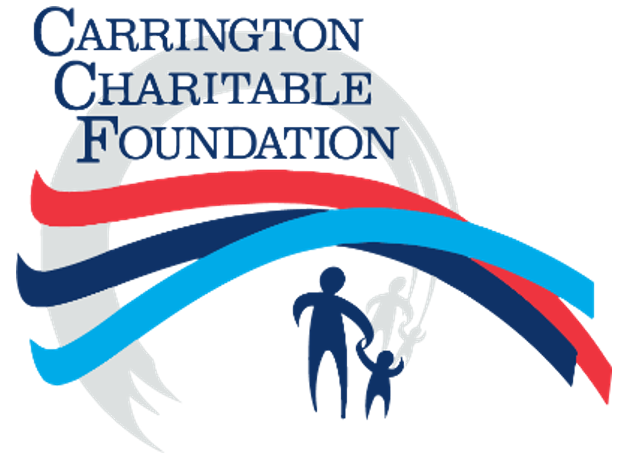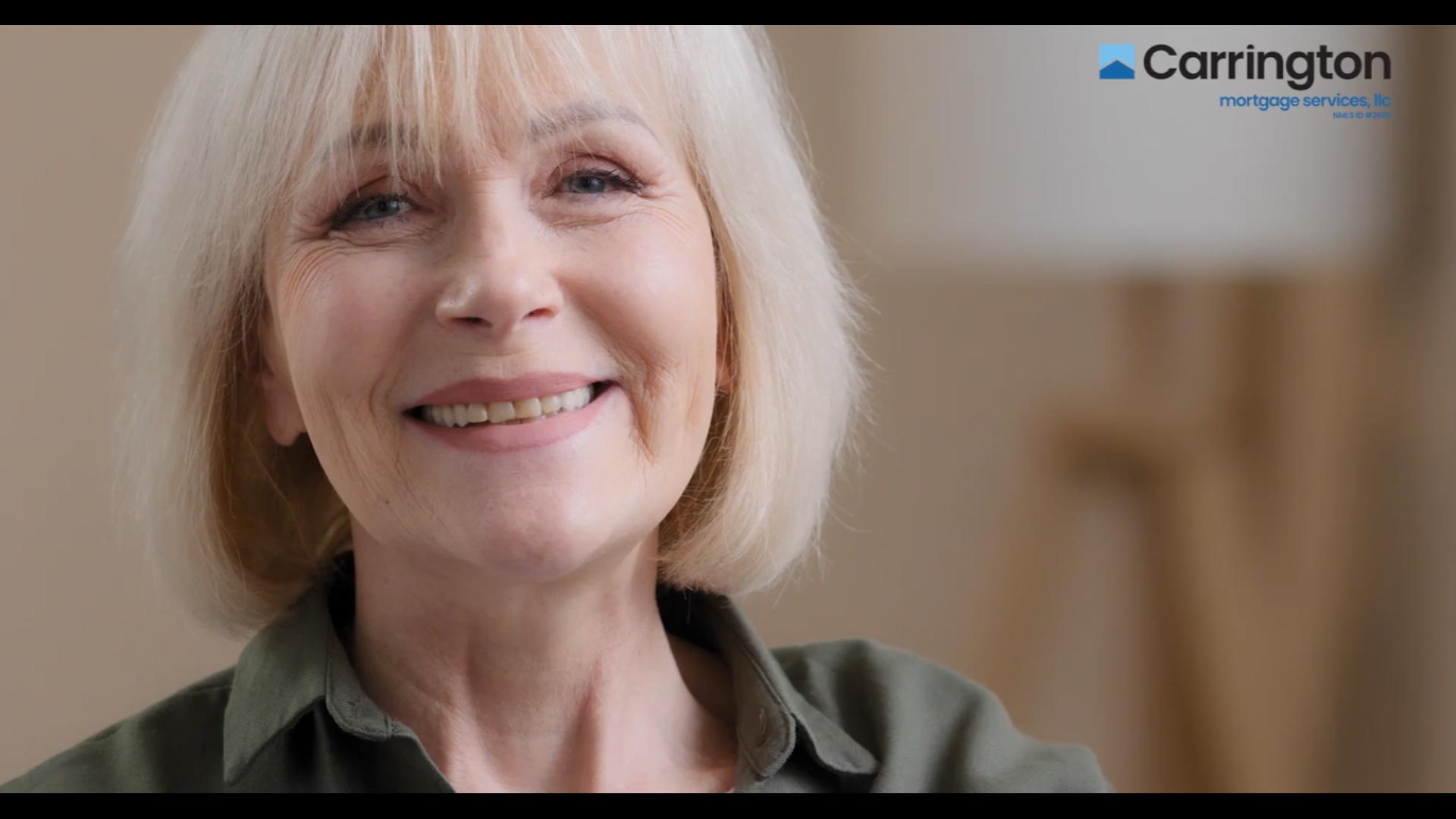Experience…
Conventional Loans
at Carrington.
Your Complete Guide to the Conventional Loan.
A conventional loan is a mortgage loan not insured or guaranteed by the government, unlike an FHA or VA loan. This type of loan adheres to guidelines established by two leading government-sponsored enterprises Fannie Mae and Freddie Mac.
- Flexible Loan Options: With conventional loans, you have the flexibility to choose from a variety of loan terms. Whether you prefer a shorter time for quicker repayment or a longer time for more manageable monthly payments, the choice is yours.
- Competitive Interest Rates: Conventional loans often come with competitive interest rates, allowing you to secure favorable borrowing terms. This can result in lower overall costs over the life of your loan.
- No Mortgage Insurance: If your equity is 20% or more of the home’s purchase price, you may avoid the requirement of private mortgage insurance. This can save you significant money over time, reducing your monthly expenses.
The most common conventional loan is a fixed-rate mortgage.
Before applying for a conventional loan, it is essential to understand the requirements set by lenders. Although these requirements may vary, common factors include:
- Credit score: Lenders typically look for a higher credit score when approving conventional loans. A solid credit history demonstrates your ability to manage debt responsibility and increases your chances of loan approval.
- Income and Employment: Lenders evaluate your income stability and employment history to ensure you can comfortably repay the loan.
- Down Payment: Conventional loans require a down payment. The specific amount will depend on various factors, including the loan program and your financial profile.
- Dept-to-Income Ratio: Lenders assess your debt-to-income ratio, which compares your monthly debt obligations to your gross monthly income. A lower debt-to-income ratio demonstrates your ability to manage existing debts while taking on new financial commitments.
Tip: Did you know that to be considered for a conventional mortgage loan, all you need to do is complete a mortgage loan application and consent to a credit check? The credit report will examine your credit history and provide your lender with your credit score. Sometimes additional supporting documents could be needed for clarification purposes.
General requirements needed to qualify for a Conventional loan:
- A minimum credit score of 620.
- Proof of income such as pay stubs, two years of federal tax returns, two years of W-2 statements, etc.
- Asset accounting of bank statements and investments to verify down payment availability.
- Employment verification when applicable.
- Miscellaneous documents, driver’s license, state identification card and Social Security number.
- A debt-to-income (DTI) ratio of no more than 43%.
Tip: Did you know that Conventional loans have maximum loan limits set by Fannie Mae and Freddie Mac? These limits vary depending on the property’s location and are subject to change annually. Therefore, it is essential to ensure your loan amount falls within the established boundaries of the area you want to purchase.
- Low down payments.
- Fewer restrictions with primary residence compared to government-backed loans.
- Fewer restrictions on appraisal and inspection requirements vs. FHA, VA, and USDA loans.
- No upfront mortgage insurance is required.
- Private Mortgage Insurance (PMI) terminates automatically when your principal balance reaches 78% of the original value of your home. In addition, a borrower can request mortgage insurance cancellation when their loan balance reaches 80% of the property’s original value if that property is their principal residence or second home and the borrower has an acceptable payment record.
- Higher credit scores can result in a lower interest rate.
- Loan processing can be faster.
- Primary residency not required.
Fixed rate
- Monthly principal and interest payment never changes.
- Safety and security in knowing what your payment will be in the future.
- Purchase, rate/term, and cash-out refinances.
Home Possible
- Low down payment.
- One- to four-unit residential condominiums, manufactured homes, or planned-unit developments.**
- Fixed rate mortgages available.
- Rate / Term refinancing options are available.*
- Gifts, grants, and Affordable Seconds are permitted as a source of funds for the down payment and closing costs (restrictions apply).
- Must be the borrower's primary residence.
FM High LTV
- Low down payment.
- One-unit principal residence, including condominiums and planned-unit developments.**
- Purchase, rate/term, and cash-out refinances.
- Fixed-rate mortgages.
- At least one borrower must be a first-time homebuyer.
HomeReady
- Low Down payment.
- One- to four-unit residential condominiums, manufactured homes, or planned-unit developments.**
- Fixed rate mortgages.
*Min 620 FICO; Mortgage Insurance required with Loan To Value (LTV) over 80%; Homeownership education required.
**Restrictions apply. Ask your Loan Officer for details.
What is a Conventional Refinance loan?
A conventional fixed-rate loan is among the most common for borrowers with a higher FICO credit score and a good credit history. Conventional loans have less-flexible guidelines but offer lower interest rates.
Conventional loans require private mortgage insurance (PMI) if you have less than 20% equity in a home. PMI requires an additional monthly fee. A lender-paid PMI product is available. Ask your loan officer for details.
Is a Conventional Refinance right for me?
A conventional loan might be right for you if you want to reduce your monthly payment or lower your interest rate.
- You have a good credit history.
- Steady and verifiable income.
- Credit score equal to or greater than 620.
Is a Cash-out Refinance right for me?
Give yourself breathing room by taking advantage of the benefits of cashing out the equity in your home:
- Reduce high-interest-rate debt.
- Make home improvements.
- Help pay for college tuition.
- Buy a second home.
How do I get a Conventional Refinance loan?
Once you have decided that a conventional refinance loan will fit you best, contact us and talk to a Carrington loan officer.
Purchasing Your First Home
Purchasing a first home is an exciting milestone in any person's life. However, the process can be intimidating. Here at Carrington, we do not want it to be. That is why we’re here to help educate and assist you along the way. If you need assistance, please contact our Homeownership Concierge at any time.
How Much Can I Afford?
“What can I afford?” This is a common question. Many factors determine what a reasonable mortgage payment should be, including annual income, existing debt payments, and down payment (if any), as well as additional costs like homeowners’ insurance and property tax.
Carrington Mortgage Services provides a handy Mortgage Payment Calculator to help homebuyers find a monthly payment that’s comfortable for them.
Getting Preapproved
The first step toward securing your loan is getting preapproved. A pre-approval will assure a seller that you are prepared and have walked through the finer details with the mortgage professional vs a prequalification. The approval process is a comprehensive analysis to determine your credit ability. Preapproval
Should I use a Real Estate Agent?
When using a Conventional Loan, finding a real estate agent with experience and knowledge of Conventional loans is essential. With the Carrington family of companies, you have full access to a professional realtor through Vylla.
Why Should I Pursue a Conventional Loan Over a Government Loan?
Conventional loans do, in general, have fewer restrictions on them than government loans. This allows lenders to be more flexible with the terms and conditions of their loans. So, if a borrower meets the requirements for a Conventional loan, it may serve them better than certain government loans would. Of course, it all depends on the individual borrower’s circumstances and needs.
Who Qualifies for a Conventional Loan?
A Conventional loan has the following minimum requirements:
- Proof of income, assets, and funds for a down payment.
- A 620 minimum FICO score.
Tip: Did you know that borrowers can increase their chances of qualifying for a conventional loan by improving their credit score, having a debt-to-income ratio under 43%, and saving enough for a larger down payment on their new home?
Ready to get Preapproved?
Homeownership starts here. We’ve got everything you’ll need, under one roof.
Learn More About Our Products and Services

Carrington Charitable Foundation 501(c)(3)
Impacting our pillars of Mobility, Stability, Purpose and Prosperity.
Visit CCFCarrington Charitable Foundation, a 501(c)(3) nonprofit organization, is not regulated by New York State Department of Financial Services or any of the agencies that regulate Carrington Mortgage Services, LLC.
Connect With Our Experts. We're here to help.







